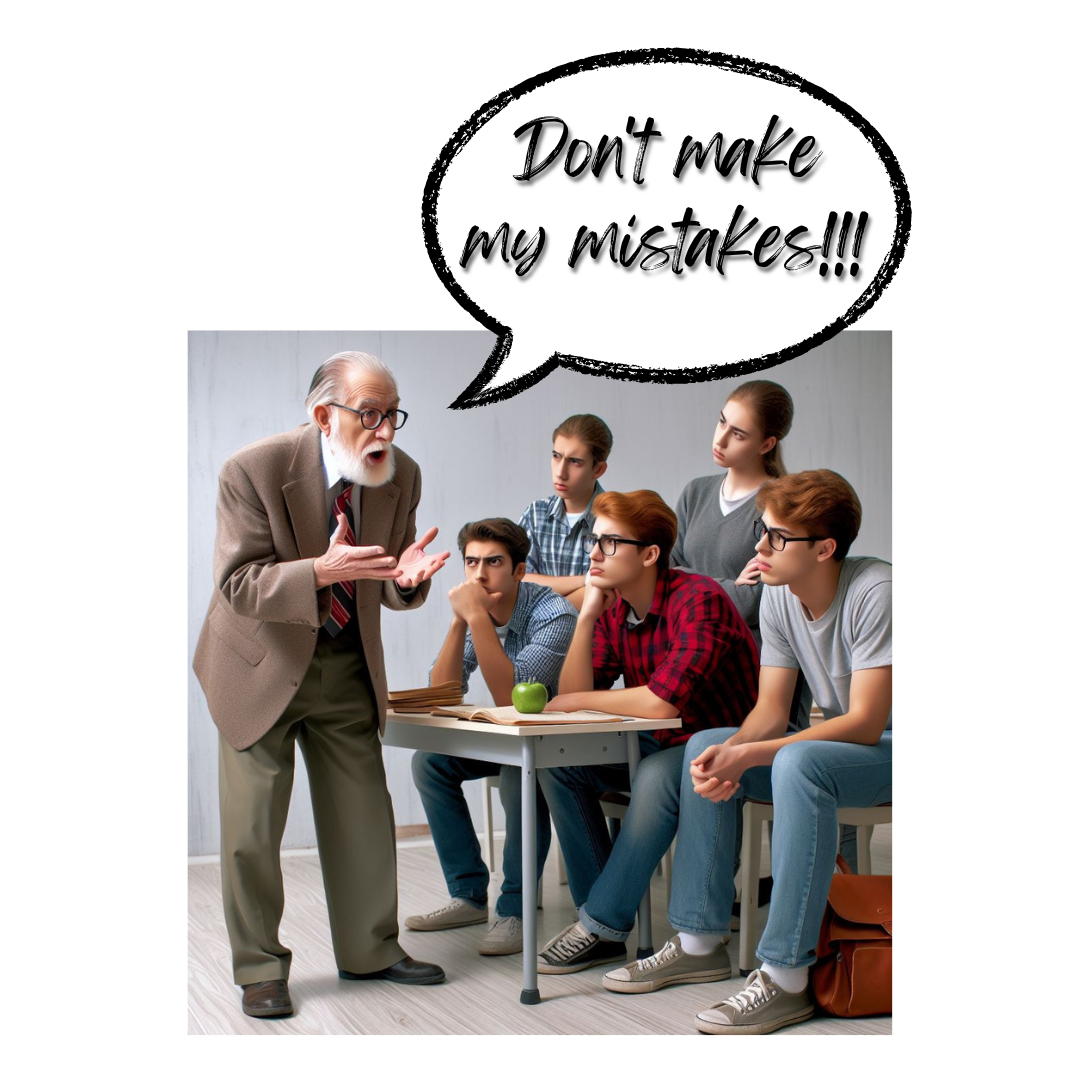It’s all true: Becoming a father has changed pretty much everything. How I see myself, what matters in the world.
I knew that would happen. Or at least, I was told.
I knew it, then, only in a theoretical sense. It’s all become real only now that it’s a lived experience.
And that’s a big challenge for all of us who want to learn.
The Learning Species
One of our, humanity’s, greatest assets is the ability to learn from others.
Famously (and somewhat stale-ly), we can see farther by standing on the shoulders of the (intellectual) giants who came before us.
If we are not seeing anything new, we still learned from those before us.
That is how and why we have different cultures, speak different languages, sing and play and more.
We can even imagine worlds and learn from the experiences of others who never existed, inhabiting worlds that aren’t real.
The older I grow and the more I think about life (a teaching life at that), the more I find this potential limited, though.
Learning by Lessons…
We can and do learn from others. But all too often, we have to experience something ourselves before we actually learn any lessons from it.
Some things may be hard, if not impossible, to truly take on until we have experienced them ourselves. What it feels like to have, let alone to lose, a child is nothing that you truly feel when you hear someone tell you about it.
It is still worth it, but the effect is limited.
In the same vein, when you are not in the same context as someone else – and are we ever, really? – you are not going to completely understand what goes through someone’s head.
The poor think that being rich would solve all their problems and can’t understand why rich people have a care in the world.
The rich often enough don’t have any care in the world that’s like those of the poor – or so it looks – and misunderstand that situation entirely.
Learning with Depth…
There is a chasm to understanding there.
The “teacher” who wants to explain something is in such a different situation from the reader / listener / student, things can only be theoretical, on the surface, if accepted as a lesson at all.
Of course it is possible to teach things in more practical, hands-on ways.
The fascination of a subject, the motivation to engage deeply with it, the connections that are fascinating (to the specialist), however, all only show themselves with deeper engagement.
And one first has to get to that; it is nothing that can simply be taught and learned.
You yourself, in fact, are likely to have issues with the lessons of your own life.
People keep asking “What would you tell your younger self?” and overlook that this younger self and a person now are basically two entirely different people.
You needed those earlier lessons to become the person you are now – but the views and advice you have now would make little sense to the person you had been before.
Ultimately, Learning Only By Experiences?
You can wish you had done some things differently when you were a teenager. Years after, you are not a teenager anymore, though. Even if you still feel that you are the same person, enough has changed that you cannot feel the emotional turmoil of those times anymore.
Maybe you wish someone had told you to do things differently. Probably someone did.
You probably would not have been able to listen to the advice. Not because you were stupid. Not because teenagers are stupid. Not because people are stupid. Because we all live our own lives, in their own particular contexts, and we only get out of those and to new understandings over time or in different situations.
In a world that is changing as fast as we have been changing it, the problem compounds: Our normality is always what we have come to know.
We see many things as normal that we grew up with. Having grown up with digital technologies, these are just a natural part of our landscape – more so than the natural parts of our landscapes that have been disappearing, that children increasingly do not see.
Even as adults, we get used to the same “shifting baselines.”
We may still remember something of how things used to be, but we typically have to make the conscious effort to remember. (And we probably misremember a fair bit, as we are wont to do.)
That we cannot simply learn certain things – probably, many things – from others, from books, certainly shouldn’t keep us from learning. We won’t be able to feel what others did, there will be limits to the lessons we can learn – but we can still gain some insights.
In the worst case, hopefully, this learning at least forms a foundation for things we will learn later, from our own experiences.
Only because we can’t fully learn a lesson in theory, without its experience, that doesn’t mean that such learning cannot set a foundation.
It is worth it, in the worst case, for that alone.
We should, however, remain humble and aware of the limitations that our knowledge is likely to have until we actually gain that knowledge through experiences in which it matters.


Leave a Reply